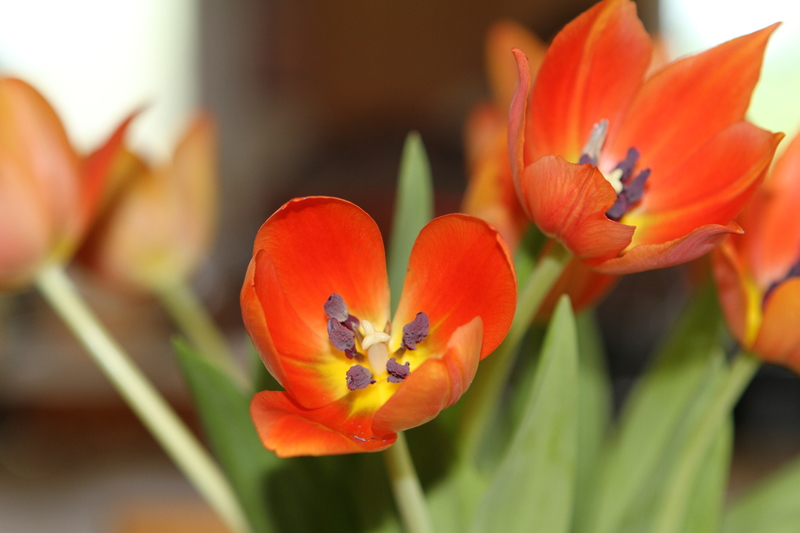Spring is in the air, and so are allergies. There is no running away from the pollens. The yellow coating on the cars and deck says it all.
Conventional medicines like antihistamines and steroid sprays do work, but they come with their own set of side effects. Some simple home remedies and alternative therapies may be helpful and safe.
Saline nasal irrigation involves putting salt water into one nostril and draining it out the other. One method uses a device called a neti pot, which comes from the Ayurvedic/yoga tradition. Saline nasal irrigation also can be performed using bottles, sprays, pumps, or nebulizers. Over-the-counter nasal rinsing products that contain sterile saline (salt water) are also available.
Much research has been conducted on saline nasal irrigation for seasonal allergy symptoms. Several studies have shown that saline nasal irrigation can improve nasal symptoms related to seasonal allergies in both children and adults.
Nasal irrigation is generally safe; however, neti pots and other rinsing devices must be used and cleaned properly. Use distilled water, because tap water that is not filtered, treated, or processed in specific ways is not safe for use as a nasal rinse. Some tap water contains low levels of organisms, such as bacteria and protozoa, including amoebas, which may be safe to swallow because stomach acid kills them, but these “bugs” can stay alive in nasal passages and cause potentially serious infections.
By using the saline irrigation, one removes the pollens and other inhaled allergens from the sinus and nasal cavities, thus avoiding an allergic response. This is better than treating the symptoms with medications after the reaction has occurred.
Some small studies suggest that eating honey may help relieve seasonal allergies. The reasoning is that honey, especially if it is produced locally, could act as do-it-yourself immunotherapy; honey contains small amounts of pollen, and honey produced in a particular area probably contains the types of pollen that people who live in that area are exposed to.
Try visiting a local farmers market and get some local honey. Eating honey is generally safe; however, children under 1 year of age should not eat honey. People who are allergic to pollen or bee stings may also be allergic to honey.
Consider buying an air filter, especially a HEPA (high-efficiency particulate air) filter, which removes particles in the air by forcing it through screens containing microscopic pores. These devices work well and aren't too expensive. Get one for the main rooms in the house and one for the bedroom. Avoid air-filtering equipment that generates ozone. HEPA filters don't.
Herbal remedies
Butterbur is a shrub that grows in Europe and parts of Asia and North America. It is mainly used for nasal allergies, allergic skin reactions, asthma, and migraine headache. There have been several small studies of butterbur for seasonal allergies. Butterbur was just as effective as a commonly used oral antihistamine for allergy symptoms such as itchy eyes, and it decreases the symptoms associated with nasal allergies.
Raw extracts of this herb contain toxic pyrrolizidine alkaloids, which can cause liver damage and cancer. Extracts of butterbur have been prepared that are almost completely free from these alkaloids, so make sure to use a product labeled "PA free."
Leaves of stinging nettle can be steeped in a tea or taken in a capsule for seasonal allergies. It has shown some benefits. It can interact with other drugs, so be careful and discuss this with your physician.
Quercetin is a bioflavonoid compound found in many fruits and vegetables, including onions, kale, tomatoes, broccoli, green beans, berries, and apples. The concentration of quercetin is highest near the peel of these foods and decreases at deeper levels. It is also present in red wine and tea. Quercetin has an activity that is very similar to cromolyn, inhibiting antigen-stimulated histamine release from mast cells in patients with allergic rhinitis. Quercetin works best when taken in advance of exposure or continuously during allergy season.
Eucalyptus essential oil is the most active preparation from the leaves of the eucalyptus plant. In respiratory illness, eucalyptus is used as an expectorant and decongestant. Several drops of eucalyptus oil may be used in a vaporizer or steam tent as a decongestant. This can also be useful for ear pain, as the inhaled steam can help open Eustachian tubes. If using the pure essential oil, start with three to five drops in a pan of hot water. People react differently to the essential oils, and it can make the eyes burn if too strong. Keep eyes closed while taking the steam inhalation.
Researchers have studied the possibility that omega-3 fatty acids might help prevent the development of allergic rhinitis, but a systematic review of the research found no clear evidence that they work. The evidence on probiotics is inconsistent, and effects may vary from one probiotic formulation to another. Other natural products, including astragalus, capsaicin, grape seed extract, Pycnogenol (French maritime pine bark extract), spirulina and an herb used in Ayurvedic medicine called tinospora or guduchi, have been used to treat seasonal allergies, but the scientific evidence is insufficient to make any judgments about whether they are helpful.
Acupuncture
There are suggestions from case reports and a few studies of seasonal allergy relief following acupuncture treatment. Acupuncture works by manipulating needles to help relieve the blockages and benefit the flow of Qi.
Chinese herbal preparations can be used with acupuncture, but caution should be used as many formulations may have interactions with other medications. Relatively few complications from the use of acupuncture have been reported. Acupuncture is technician dependent, so finding a good, licensed, well-trained acupuncturist is of prime importance.
Other approaches
Osteopathic manipulation in the cranial fields has been shown to help with sinus drainage.
Many homeopathic formulations are available. One of the products which has some studies is Luffeel, which is available as tablets and nasal sprays.
So, this spring season if you are suffering from seasonal allergic rhinitis, you can use some of these home remedies or alternative therapeutic options. Make sure you have consulted your physicians and you are aware of the interactions some options can have on you and the medications in use.
Dr. Uday Jani is board certified in Internal medicine and fellowship trained in integrative medicine. Reach him at Shore View Medical PA, 28312 Lewes-Georgetown Highway, Milton. Call 302-684-0990 or visit udayjanimd.com.
























































